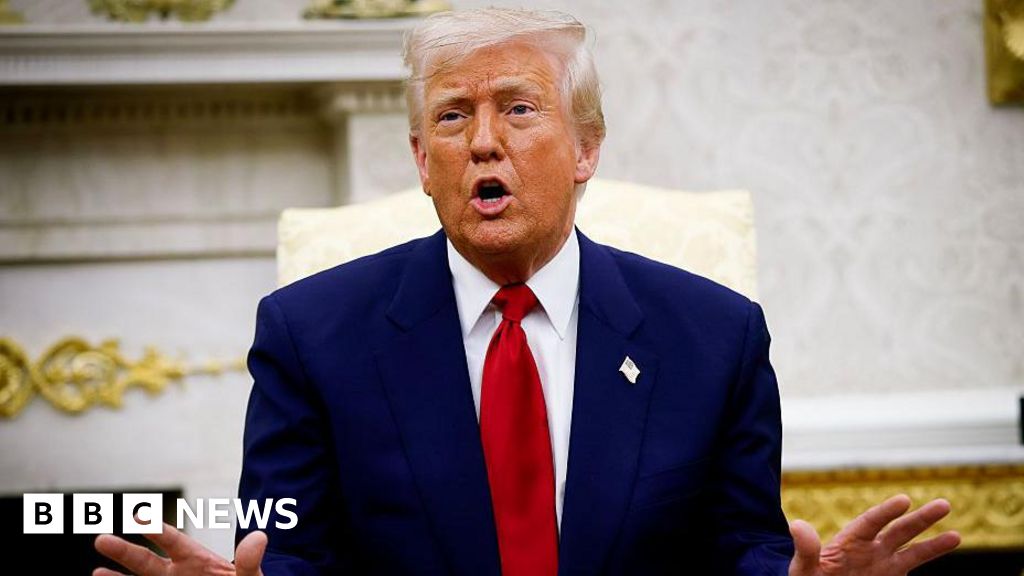Analysis of Trump's Tariff Policies and Trade War Implications

The global trade landscape is currently witnessing a series of complex and often contradictory maneuvers, primarily driven by the United States' evolving trade policies. Recent developments indicate a significant shift in the U.S. approach to tariffs, particularly concerning trade with China, while other nations are also impacted by these fluctuating policies.
A noteworthy event occurred with the quiet release of a U.S. customs messaging note that exempted smartphones from the 125% tariff on goods entering the country from China. This exemption, identified by the code "8517.13.00.00," effectively removed the highest-value Chinese export to America from the imposed import taxes. This decision contrasts sharply with the earlier statements from the U.S. Commerce Secretary, who had suggested that escalating tariffs on China aimed to bring iPhone production back to the U.S. The implications of this exemption are substantial, potentially preventing significant price increases on Apple products in the U.S. market. According to Counterpoint, a global technology market research firm, approximately 80% of Apple's iPhones intended for U.S. sale are manufactured in China. Without the exemption, typical iPhone prices might have surged closer to $2,000 rather than $1,000, or Apple might have had to distribute the cost globally. The presence of Tim Cook, Apple's CEO, as a key figure capable of mediating between the U.S. and China, underscores the intricate connection between the two economies.
Further changes involve a shift in the U.S. administration's approach to trade negotiations. Pete Navarro, known for advocating reciprocal tariff rates based on a country's trade surplus with the U.S., is reportedly being sidelined in favor of Treasury Secretary Scott Bessent. This transition raises questions about the incentives for other nations to engage in trade negotiations with the U.S., especially given the Trump administration's sensitivity to bond market reactions and the safe-haven status of U.S. debt for investors. Astonishingly, nearly a quarter of China's total exports are now exempt from the 125% tariff, and other nations such as Taiwan, Malaysia, Vietnam, and Thailand are also benefiting from these exemptions. This approach effectively provides discounts from the universal 10% tariff to those with the largest surpluses, a direct contradiction to Navarro's initial calculations.
While some countries with substantial trade surpluses are receiving exemptions, allies like the UK, which has a trade deficit with the U.S., face tariffs on key exports such as cars and medicines. This inconsistency highlights the complexities and potential contradictions in the U.S.'s trade policy, leading some to describe it as the "Art of the Repeal."
Meanwhile, India is exploring avenues to mitigate risks associated with U.S. tariffs. According to Alchemy's Hiren Ved, increasing imports of U.S. oil could help reduce the trade surplus. Ved estimates that restoring U.S. oil's share to 9 percent could add $7.6 billion in imports, potentially reducing a quarter of the trade surplus. Moreover, India's conciliatory approach to trade issues positions it favorably in navigating the complex global trade environment.
In another significant development, the U.S. is tightening regulations on low-value e-commerce shipments from China, creating opportunities for Indian online exporters. The Global Trade Research Initiative (GTRI) suggests that India could fill the gap left by China, particularly in customized, small-batch products. However, this requires urgent reforms in banking, customs, and export incentives to support small online sellers. Addressing issues such as restrictive RBI rules, high bank fees, and the lack of access to affordable loans and export incentives for e-commerce shipments is crucial for India to capitalize on this opportunity.
TCS CEO K Krithivasan believes that the tariff-induced uncertainty impacting the IT sector will be short-lived and expects resolution within months. TCS's substantial order book and strong deal pipeline are expected to ensure continued revenue bookings, and Krithivasan notes a slight uptick in pricing. Despite some clients reducing discretionary spending, the company remains confident in its ability to navigate the challenges and resume growth in the North America business once the situation is resolved.
The financial markets have reacted strongly to President Trump's tariff policies, experiencing volatility in response to pauses and changes in trade policies. Senator John Cornyn praised the President's actions for bringing countries to the negotiating table, while Representative Jasmine Crockett criticized the inconsistent strategy. The markets continue to be sensitive to developments in the US-China tariff war, with investors closely monitoring key quarterly earnings from major Indian companies.
Overall, the global trade landscape is characterized by uncertainty and rapid shifts in policy. The U.S.'s evolving approach to tariffs, the opportunities for countries like India to mitigate risks and capitalize on new openings, and the resilience of companies like TCS in navigating these challenges all contribute to a complex and dynamic environment. The coming weeks and months will be critical in determining the long-term impacts of these policies and the strategies employed by various nations and businesses to adapt and thrive.











